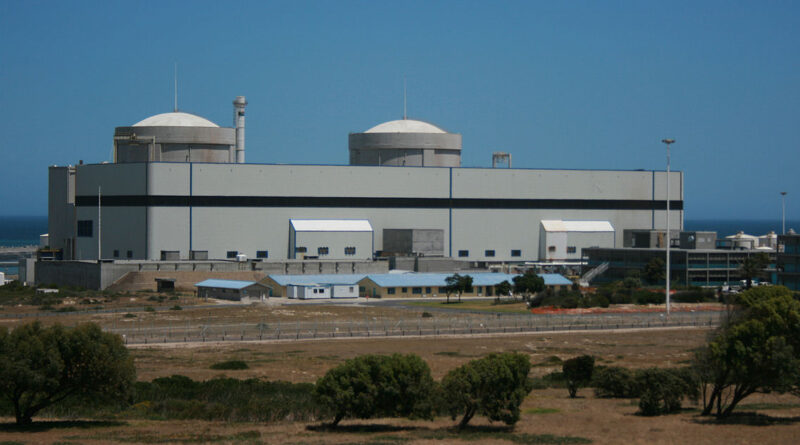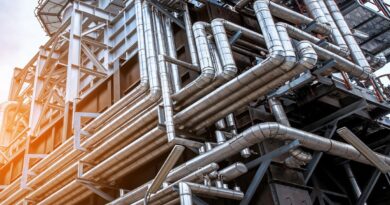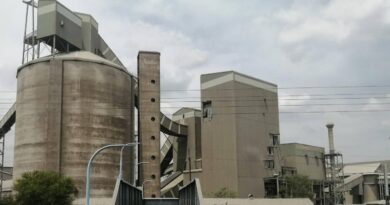Eskom needs to be further from government, not closer
On the 9th of January, President Cyril Ramaphosa announced that the Department of Energy will be taking over Eskom, and that the declining parastatal will now directly fall under the purview of the state. This comes after the harshest loadshedding the country has faced, since Eskom began its timeline of collapse in 2007 and the resignation of its CEO, Andre de Ruyter.
Eskom has become almost a symbol of everything wrong in this country. Coal is stolen and replaced with subpar alternatives by corrupt tenderpreneurs. Officials and employees are appointed by political decree. Unions run amok, sabotaging their employer in a vain hope to be paid an exorbitant wage.
It’s a cavalcade of failure and chaos for a decade and a half. But Eskom’s rot didn’t begin in 2007. And no, it didn’t even begin in 1994. Eskom’s inherent corruption and mismanagement began even before it was an electricity provider, when it was founded as Escom in 1923. An electricity regulator made it illegal for any power producer to charge for a profit – thereby kicking private enterprise out of the industry.
Escom was formed through a corrupt relationship between the nationalist government and the mining magnates. The mines wanted cheap power. The government wanted power and support for their racialised order. As a part of the deal, Escom was formed to regulate the vibrant privatised electricity industry, and eventually force it to be nationalised under Escom as a monopoly power producer.
For a while, it seemed to run fine. But this was purely due to cheap coal, mined by cheap labour. When Escom ran into any sort of trouble, which it did often, it had to go begging for government-backed loans. It was not allowed to charge for a profit and prided itself on charging an unsustainably cheap rate for electricity.
Come 1994, and the renaming of Escom to Eskom, South Africa underwent a huge project of electrification. Eskom now had to provide electricity for the entire growing population. And they did so, but with the cheapest electricity in the world and no plans to expand their generating capacity.
It all looked hunky dory for those running Eskom at the time. And the government only cared that people had lights and that electricity was cheap. No one cared that more plants weren’t being built. And besides, there wasn’t enough money to build them. Electricity was already being subsidised by extreme deficit spending.
There was an attempt to privatise Eskom and the entire industry in the late 90s under GEAR, but this was abandoned due to the prevalence of communist thought in the ANC, SACP and COSATU. Besides, which private company would want to compete with unsustainably and unprofitable electricity prices backed by taxes and debt?
As we all know, this came to a head when power plants began reaching their retirement date. Yet, nothing was done. For 16 years now, nothing was done since loadshedding began. Corruption spiralled out of control, Eskom became a theatre for petty personality politics, and vanity projects focused on green energy and nuclear deals replaced sound economics.
The root of all of Eskom’s problems is its nature as a government-owned monopoly. It cannot be held accountable by customers or competitors because the former are forced to use them, and they have none of the latter. They were able to charge unrealistic prices because they could rely on the government bailing them out. And they could be destroyed by corruption because they are so intertwined with an intrinsically corrupt government.
Now, with all this in mind, how does shifting Eskom’s leadership from a semi-independent board under the government, to the government directly help matters?
The simple answer is that it doesn’t. It’s been government involvement from the get-go that has put us in this mess. It has been corrupt politicians interfering with coal procurement which has driven up the cost of production, and it has been cadre deployment and BEE ensuring that officials are corrupt and incompetent. It has been reliance on a government-owned monopoly which has left South Africans in the dark – literally.
It is insanity to think that Eskom’s relative independence was its downfall. Eskom should have been more independent! It should have been left to fend for itself. Preferably, with dozens if not thousands of competitors.
A free market in electricity is what this country needs – and has needed for a century. The only way that bringing Eskom under the Department of Energy will help anyone is if it is a preparation stage for unbundling and privatisation of the entire sector. But that is a vain hope while the corrupt and the collectivist still reign.




